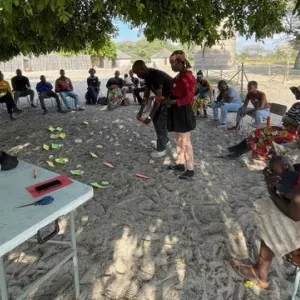Shared natural resources such as cultivated land, water, wetlands, fisheries, and forests play a vital role in supporting human well-being but are often contested: Both between individuals and groups or between groups of competing resource users. These conflicts can be hard to manage; and government regulations and markets often fall short. Cooperation and self-regulation among local actors can be a powerful alternative or complement to formal mechanisms. However, supporting their development becomes particularly challenging when local governance structures are weak or entirely absent.
Experiential learning games that simulate resource conflicts and cooperation are increasingly used as tools for this purpose. Playing such games can vividly illustrate social-ecological system dynamics, raising awareness of tradeoffs and offering ways to discuss and finding solutions to address them cooperatively.


